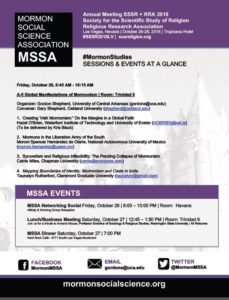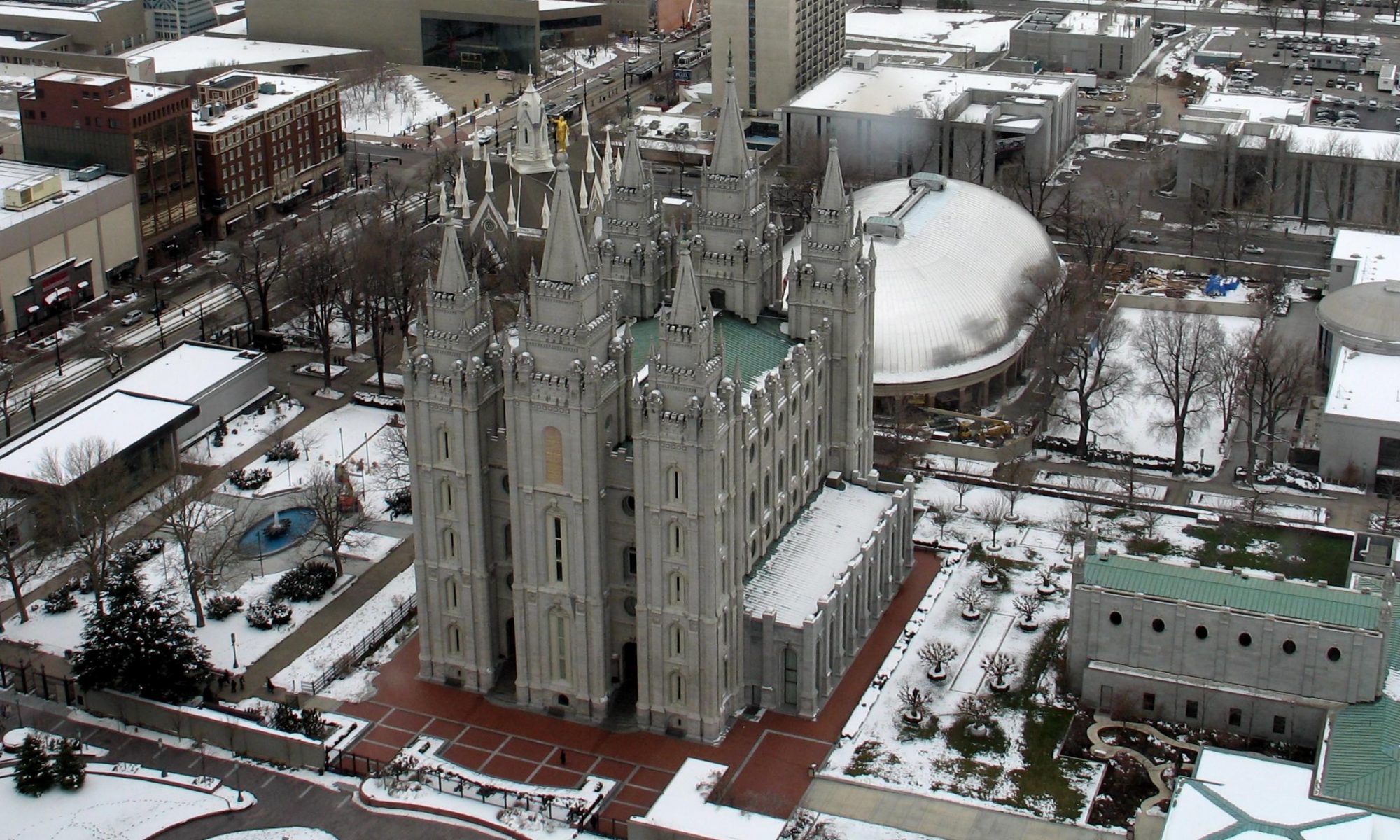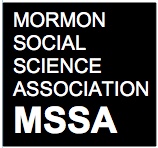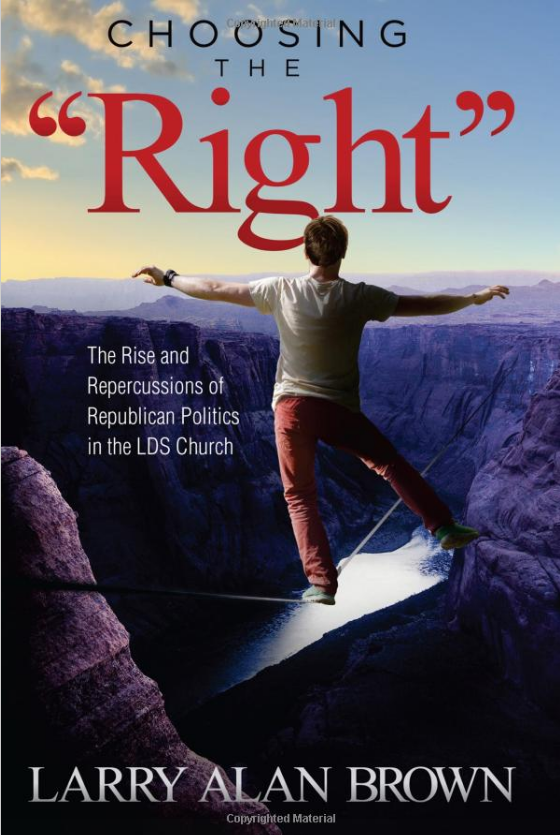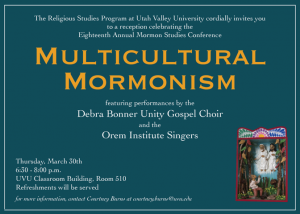Richley Crapo © 2018
The purpose of this article is simply to provide a summary of the history of Joseph Smith’s institution of plural marriage from what anthropologists call an “emic” perspective, one that attempts to outline the various practices that were involved as they were likely understood within the theological framework Joseph Smith was developing. This summary has been gleaned from the work of others and I make no claim to having done the original research. Since my intent is not to review the existing literature, but to simply pull together a brief overview of the history itself, these works by others are not specifically referenced here. However, I wish to acknowledge in particular works by Todd Compton, (In Sacred Loneliness: The Plural Wives of Joseph Smith, Salt Lake City: Signature Books, 1997) and by Brian C. and Laura H. Hales (Joseph Smith’s Polygamy, 3 vols., Greg Kofford Books, Draper, UT, 2013 and 2015).
Background
Joseph Smith married Emma Hale on 17 January of 1827. By sometime in June of 1829 he had completed dictating the text of the Book of Mormon. In this text (Jacob 2:30), the Lord indicated that for specific purposes he might institute the practice of plural marriage, but otherwise they should remain monogamous. This text may have raised questions in Joseph Smith about the circumstances under which plural marriage might be condoned by God. He was certainly aware of its practice by Old Testament patriarchs and prophets, and this Book of Mormon text certainly did not leave the issue a dead one.
1831: The First Revelation on Plural Marriage
Helen Mar Kimball was one of Joseph Smith’s plural wives, and her recollection in 1884 was that “The Lord revealed [plural marriage] to His prophet, Joseph Smith, as early as the year 1831.i Her memory was supported by two other plural wives Emily Partridgeii and Lucy Walker.iii These recollections may have referred to a revelation received on 17 July 1831 in which missionaries sent to preach the Gospel to Native Americans who had been resettled from the Great Lakes area to federal lands just west of Missouri. In this revelation, the missionaries were told, “For it is my will, that in time, ye should take unto you wives of the Lamanites and Nephites”.iv
In 1869 Apostle Orson Pratt remembered that “In the fore part of the year 1832, Joseph told individuals, then in the Church, that he had inquired of the Lord concerning the principle of plurality of wives, and he received for answer that the principle of taking more wives than one is a true principle, but the time had not yet come for it to be practiced.”v Since the missionaries were already married, this revelation seems to have condoned their possible practice of plural marriage, although no such marriages occurred during their “Mission to the Lamanites.”
Joseph Smith’s Hesitation
Polygamy was repugnant to the Victorian sensibilities of Americans, and Joseph Smith himself seems to have resisted the practice. He wrote, “The same God that has thus far dictated me and directed me and strengthened me in this work, gave me this revelation and commandment on celestial and plural marriage, and the same God commanded me to obey it. He said to me that unless I accepted it, and introduced it, and practiced it, I, together with my people would be damned and cut off from this time henceforth. We have got to observe it. It is an eternal principle and was given by way of commandment and not by way of instruction”vi. According to President Joseph F. Smith, “When that principle was revealed to the Prophet Joseph Smith … he did not falter, although it was not until an angel of God, with a drawn sword, stood before him; and commanded that he should enter into the practice of that principle, or he should be utterly destroyed, or rejected, that he moved forward to reveal and establish that doctrine”.vii
1835: Fanny Ward Alger, Joseph’s First Plural Wife
Joseph’s first plural wife was Fanny Ward Alger (age 19), a young woman who was employed as a maid in the Smith household in Kirtland, Ohio. John Hawley wrote, “What I heard [from] John Olger one of the first (or among the first) members of the Church toald me his Sister was Seald to Joseph in Curtlin [Kirtland), this he Said to me in 1868.viii According to Mosiah Hancock, Joseph enlisted Mosiah’s father Levi Hancock as the intermediary to make the proposal of marriage since he was the brother-in-law of Fanny’s father. Mosiah wrote that Levi first sought permission of Fanny’s father and mother and than went to Fanny and said, “Fanny, Brother Joseph the Prophet loves you and wishes you for a wife. Will you be his wife?” and she accepted. According to Mosiah, Levi performed the marriage ceremony.ix
William Earl McLellin, who had been excommunicated from the church for apostasy, may have acknowledged that it was actually this marriage ceremony that outraged Joseph’s wife, Emma, when she observed it from outside a barn. In an 1875 interview with J. H. Beadle, McClellin, who wrote that McLellin “. . . also informed me of the spot where the first well authenticated case of polygamy took place, in which Joseph Smith was “sealed” to the hired girl. The “sealing” took place in a barn on the hay mow, and was witnessed by Mrs. Smith through a crack in the door”.x The word “sealing” was commonly used by Mormons of that era for marriages either for time, for eternity, or both.
After seeing what McLellin,xi called “the transaction” in a letter to Joseph Smith III, Emma threw Fanny Alger out of the Smith home. Fanny was taken in by the mother of Chauncy Webb, but during this year rumors circulated about “licentious conduct”xii and after enduring humiliation until the following year, Fanny left Kirtland with her parents and later married a non-member of the church.
Joseph sought the support of Oliver Cowdery in his efforts to calm Emma regarding his marriage to Fanny Alger. However, Cowdery was won over to Emma’s point of view. In her anger, Emma complained of Joseph’s behavior as both being “polygamy” and “adultery,”xiii and Cowdery rejected polygamy as acceptable so took the position that since polygamy was unacceptable then Joseph’s relationship with Fanny was, indeed, adulterous. In a letter to his brother Warren Cowdery,xiv Oliver referred to the incident as a “dirty, nasty, filthy scrape.”xv
1836: Restoration of the Sealing Authority
Perhaps because of the gossip in Kirtland, Joseph Smith did not initiate further plural marriages in Kirtland. On 3 April 1836, Joseph had a remarkable vision in which the prophet Elijah bestowed upon him the “sealing power,” the power to have marriages “sealed in heaven” that he performed on earth. Joseph’s marriage to Fanny Alger had not been performed as a marriage “sealed in heaven.” Rather, it was performed based simply on the authority of the priesthood, which Joseph Smith had previously declared to be superior to ordinary civil authority.xvi This distinction between marriages that were “sealed” and those that were performed simply under priesthood authority resulted in a complexity in deciphering the early historical records: Marriages performed simply by priesthood authority were equivalent to civil marriages in that they were understood to be for this lifetime only, while marriages that were “sealings” could include marriage “for time” or they could be “for time and all eternity.” Distinguishing between the latter two is particularly fraught with difficulties particularly because the Saints commonly used the term “sealed” without making the distinction.
1841?: Lucinda Morgan
After the restoration of the sealing power, Joseph may have participated in a sealing with Lucinda “Linda” Morgan (age 37) in 1841, but the evidence is weak for such a sealing. If it did occur, the interim may have been due in part to Emma’s strong reaction against Joseph’s marriage to Fanny Alger as well as to Oliver Cowdery’s estrangement and the scandalous rumors that ensued. This was also the period of conflicts in Missouri and the move to Nauvoo, Illinois, both of which may have been barriers to further marriages.
Lucinda herself left no records. The main evidence for a sealing is that Joseph Smith was sealed to her in a proxy sealing in Nauvoo in 1846, two years after his death. However, there are known cases of such proxy sealings to women to whom Joseph had not been married in life, so this proxy sealing is not conclusive evidence. Another is an unfriendly second-hand report by Wilhelm Wyle who claimed that Lucinda told him that she had been a “mistress” to Joseph Smith for four years. Some historians have taken this to be a hostile report that distorted an underlying truth, that Lucinda had been sealed to Joseph Smith rather than discounting the claim entirely. Others disagree. The bottom line is that nothing can be said with surety about whether there was such a sealing or not.
At the time of the possible sealing, Lucinda was the wife of George W. Harris. Lucinda continued to reside with Brother Harris. That Lucinda continued to cohabit with her civilly married husband seems to indicate that if she was, indeed, sealed to Joseph Smith, the relationship was not a sexual one.xvii
The So-called “Polyandrous” Marriages
Joseph Smith contracted twelve so-called “polyandrous” marriages.xviii The first of these was with Zina Diantha Huntington (age 26). Again, the documentary evidence suggests that this marriage did not include marriage “for time,” since her civil husband Henry Bailey Jacobs was aware of the marriage. In fact, Joseph Smith presented the request to Henry, and Henry assented believing that “the prophet can do no wrong.” Zina herself wrote in 1838, “I was sealed to Joseph Smith for eternity.”xix
Three months later, on the 11th of December, Zina’s sister Presendia Lathrop Huntington (age 31), the civil wife of Norman Buell, became Joseph Smith’s wife “for eternity.”xx Norman Buell was a non-member and who was antagonistic toward the church. Since the marriage was only for eternity, her husband was not informed of the sealing and she continued to live with him. Historian Fawn Brodie, who personally viewed Joseph Smith’s polygamy as
simply “disguised whoredom”xxi suggested that Presendia’s son Oliver Buel (born 1838 or 1839) was actually but no documentation exists that supports her conjecture that the sealing was also a sexual union. Indeed, genetic testing by Ugo A Parego in 2007 demonstrated that Oliver was not a descendant of Joseph Smith.xxii
Mary Elizabeth Rollins (age 23) was sealed to Joseph Smith by Brigham Young on 17 January 1842. At the time she was civilly married to Adam Lightner, who was not a member of the church. At the time of the sealing, Mary Mary Elizabeth was pregnant with her third child with Adam, and after the sealing she continued living with him. She wrote that after Adam’s refusal to join the church, “I went forward and was sealed to Joseph for Eternity.”xxiii There is no evidence of a sexual relationship with Joseph Smith.
The next “polyandrous” wife of Joseph Smith was Sylvia Porter Sessions (age 23). This marriage was most likely performed on 8 February of 1843.xxiv At the time of the sealing, Sylvia was separated from her husband Windsor Palmer Lyon, who had also been excommunicated in November of 1842. Thus, Sylvia most likely considered herself to be divorced. Divorces, like marriages, in the frontier era were often simply a matter of “common law” and legal divorce was often foregone in this way. The marriage was likely consummated, and on her deathbed, Sylvia confided in her daughter Josephine Rosetta Lyon that she was Joseph’s daughter. This suggests that Sylvia’s relationship with Joseph Smith was sexual, although it is conceivable that she meant that due to the marriage being both for time and eternity, Josephine would belong to her and Joseph in the next life.
Patty Bartlet (age 47), the wife of David Sessions and mother of Sylvia Porter Sessions, was sealed to Joseph Smith. She wrote of this sealing in her journal that, ““I was sealed to Joseph Smith by Willard Richards March 9 1842 in Newel K Whitneys chamber Nauvoo, for time and all eternity…Sylvia my daughter was presant [sic.] when I was sealed.”xxv However, her diary entry in June of 1860 originally read simply “for Eternity.” It was not until after her 1867 proxy sealing for both time and eternity that, as she noted in her diary at that time, she revised the original entry by adding in superscript “for time and all eternity” above and between the words “for Eternity.”xxvi Patty continued to reside with David, although three months later he left on a mission. Later, the couple migrated to Utah.
In April of 1842 (or May of 1843), Joseph Smith was sealed to Marinda Nancy Johnson (age 27), the wife of Orson Hyde. John Dee Lee wrote that Orson gave permission for the sealing “for an eternal state.”xxvii Orson was on a mission at the time of the sealing, and Marinda conceived no children until he returned. So this sealing best fits the pattern of “for eternity” only and did not involve marriage “for time” or a sexual relationship with Joseph Smith.
Joseph Smith was possibly sealed to Elizabeth Davis (age 50), the wife of Jabez Durfee in the spring (possibly June) of 1842. There is some evidence that Jabez knew of this sealing. After Joseph Smith’s death, Elizabeth left Jabez and married Cornelius Lott. Cornelius migrated to Utah, but Elizabeth traveled only part way and then returned to Quincy, Illinois. There is no evidence of a sexual relationship in the sealing to Joseph Smith, so her continued cohabitation with Jabez may indicate that the sealing was for eternity only, although this is not clear.
Sarah Kingsley (age 52 or 54), wife of John Cleveland (a non-member) was the next civilly married woman to be sealed to Joseph Smith. The sealing was on 29 June 1842. There is no documentation that would help to determine which type of sealing this was.
Sarah Ann Whitney (age 17), the daughter of Newel K. Whitney, was actually single when Joseph Smith married her. However, nine months later she then married Joseph C. Kingsbury in a non-sexual marriage. In this sham marriage, Joseph Kingsbury was simply a “front husband” whose role was simply to prevent rumors about her relationship with Joseph Smith.xxviii After the death of Joseph Smith, the marriage between Sarah and Joseph Kingsbury was ended.
Ruth Dagget Vose, wife of Edward was sealed to Joseph Smith for “eternity only.”xxix Emma Smith was present at the sealing, and she would have been unlikely to have been otherwise. Notes taken by Andrew Jensen during an interview of either Eliza R. Snow or Malissa Lott described the relationship this way: “While there the strongest affection sprang up between the Prophet Joseph and Mr. Sayers. The latter not attaching much importance to the theory of a future life insisted that his wife Ruth should be sealed to the Prophet for eternity, as he himself should only claim her in this life. She was accordingly sealed to the Prophet in Emma Smith’s presence and thus became numbered among the Prophets plural wives though she continued to live with Mr. Sayers until his deathxxx Ruth continued to live with Edward, and the two of them eventually migrated to Utah.
Another sealing took place on 1 June 1843 between Joseph Smith and Elvira Annie Cowles (age 29), wife of Jonathan Holmes. Jonathan seems to have been aware of the sealing and later stood proxy for Joseph in his sealing to her in the Nauvoo temple. William Wright reported that, “I was well acquainted with two of Joseph’s wives, LaVina [Elvira] and Eliza [Snow or Partridge]. I came to Utah in ’69, and rented LaVina Holmes farm. Before Joseph was shot, he asked Jonathan Holmes if he would marry and take care of LaVina, but if LaVina wanted him to take care of her he would take her. He would fill that mission to please his Father in Heaven.”xxxi Elvira conceived her first child seven months after Joseph died. Thus, this sealing is likely to have been for eternity only.
A final case was an apparent sealing of Mary Heron (age 39), wife of John Snider. The evidence seems to indicate that John was aware of the sealing to Joseph Smith (since his son-in-law Joseph Ellis Johnson was. See footnote 31, below). John remained a faithful Latter-day Saint, but was never sealed to Mary, even after her passing. That he did not is somewhat strange, unless perhaps he was aware that in the sealing to Joseph Smith Mary became his wife both for time and eternity and John remained with Mary as a “front husband.”xxxii The couple had no children after 1843. Indeed, their last child was born in 1833, long before the apparent date of the sealing.
Dynastic Sealings
Two other sealings are of special note. Like those which are commonly called “polyandrous,” these too appear to have been solely “for eternity” sealings. The first was to Helen Mar Kimball, the daughter of Apostle Heber C. Kimball. This sealing was at the request of Elder Kimball, and his intent may have been to establish a close tie to “the Prophet” Joseph Smith in the next life. As such, it has been referred to by some historians as a “dynastic sealing” rather than as a “marriage” in the usual sense.
The sealing occurred early in May of 1843. Helen wrote of this sealing, “Having a great desire to be connected with the Prophet Joseph, he offered me to him; this I afterwards learned from the Prophet’s own mouth” and added that, “[My father] asked me if I would be sealed to Joseph … [Smith] said to me, ‘If you will take this step, it will ensure your eternal salvation & exaltation and that of your father’s household & all of your kindred.[‘] This promise was so great that I willingly gave myself to purchase so glorious a reward.”xxxiii Much has been made of this “marriage” in the popular press, since the sealing was performed when Helen was only 14 years, nine months old when the sealing occurred. Although marriages at the age of fourteen were legal at that time, they were rare. However, there is no evidence that this was a connubial relationship, one that could properly be called a “marriage,” and Helen remained living with her parents.
It may also be relevant that during the trial regarding the ownership of the Independence Missouri temple lot, the LDS church sought out polygamous wives to testify that polygamous marriage had been practiced under President Joseph Smith. One consideration was their willingness to testify that their marriages to Joseph Smith had been sexual and not just in name only. Helen Mar Kimball was passed over, even though she lived closer to the disposition location than did the three women who did testify: Malissa Lott (who had to travel thirty miles to testify), Lucy Walker (who travelled 82 miles), and Emily Partridge. Since Helen was well known as a stout defender of polygamy, not including her would have been strange had she been able to testify that her sealing to Joseph Smith included conjugal relations.
In a poem that Helen wrote in 1881 about her sealing to Joseph Smith,
she began, “I thought through this life my time will be my own The step I now am taking’s for eternity alone, No one need be the wiser, through time I shall be free,” which suggests that the sealing was, as she wrote, “for eternity alone,” not “through time.”
The second case of a young sealing was that with Nancy Mariah Winchester, the daughter of Stephen Winchester Sr. Unfortunately, this is the least well documented of all of Joseph Smith’s sealings. The primary evidence is that of Eliza Roxy Snow who appended her name to a list of plural “wives” of Joseph Smith that was being compiled by Andrew Jensen in an interview with Eliza.xxxiv However, the source of Eliza’s information is unknown and may have simply been based on her awareness that Nancy was sealed to Joseph Smith after his death in a proxy sealing on the same day in which Eliza herself underwent the same kind of posthumous proxy sealing. The sealing, if one actually occurred, was likely in 1843, when she only 15 years old. Like Helen Mar Kimball, Nancy continued to live with her parents after the time of the purported sealing. After Joseph’s death, there is documentation that Nancy was married Apostle Heber Kimball, but she continued to live with her own parents until she was an adult, and this marriage was apparently never consummated. Heber eventually released her to marry another man, after which she bore her only child.
Although there is no documentation of Joseph Smith having spoken to the issue of sealings to young girls, the policy in Utah under his successor Brigham Young was that although early age marriages could be performed, conjugality was to be postponed until the girl had reached biological maturity. This rule may well have simply reflected a continuance of what Brigham Young had learned from Joseph Smith. For example, Mosiah Hancock wrote of his sealing to a 12 year old girl that, “On about January 10, 1846, I was privileged to go in the temple. . . . I was sealed to a lovely young girl named Mary, who was about my age, but it was with the understanding that we were not to live together as man and wife until we were 16 years of age. The reason that some were sealed so young was because we knew that we would have to go West and wait many a long time for another temple.”xxxv As uncharacteristic as such an approach to marriage might seem to persons in the twenty-first century, attitudes in the American Victorian era towards marriage, especially in terms of the LDS theology of “eternal marriages” were simply different than those of our era. The emphasis in such Mormon sealings was their eternal consequences rather than the potential they provided for a sexual relationship.
Sexuality and Non-Sexuality in Joseph Smith’s Sealings
Some of Joseph Smith’s sealings were certainly “marriages” in the full sense of having included sexual consummation. However, others were not, as in the case of those which were specifically sealings “for eternity” but not “for time.”
Of those polygamous marriages simply “for time” (as in the case of Fanny Alger) or both “for time” and “for eternity,” the available documentary evidence only demonstrates that there was a sexual relationship in twelve of forty-two cases. These are for Mary Heron Snider (whose husband was a “front husband”), Eliza Roxy Snow (who acknowledged the relationship), Sarah Ann Whitney (whose husband Joseph C. Kingsbury was also a “front husband”), Emily Dow Partridge (who testified of the relationship), Eliza Maria Partridge, Almira Woodward Johnson, Lucy Walker, Olive Grey Frost, and Melissa Lott.
The case of Fanny Alger may have involved a sexual relationship, but none of the existing documents say so explicitly. Similarly, Sylvia Porter Sessions’ comment to her daughter Josephine is widely taken to have meant that Josephine was the biological daughter of Joseph Smith, although the statement itself was not explicit and, if it was based on Sylvia having had a sexual relationship with Joseph, the genetic evidence has demonstrated, as mentioned above, that Josephine was not, in fact, the biological offspring of that relationship.
TO BE CONTINUED …
NOTES:
